Astronomy
-
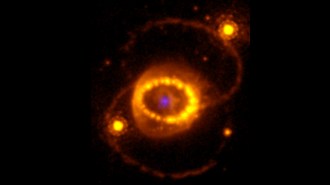 Astronomy
AstronomyJWST spies hints of a neutron star left behind by supernova 1987A
Signs of highly ionized atoms in dusty clouds at SN 1987A’s explosion site suggest a powerful source of X-rays — likely a neutron star — lurks within.
By Adam Mann -
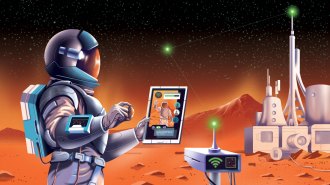 Space
SpaceHow to build an internet on Mars
Future Red Planet inhabitants will need new ways to connect, including improved relay networks and an offshoot internet.
By Payal Dhar -
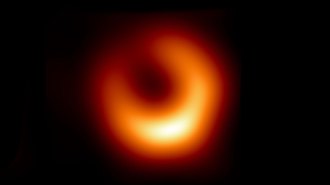 Space
SpaceAstronomers have snapped a new photo of the black hole in galaxy M87
The Event Horizon Telescope image shows material around the black hole has moved, but other aspects remain the same, proving Einstein is right again.
By Adam Mann -
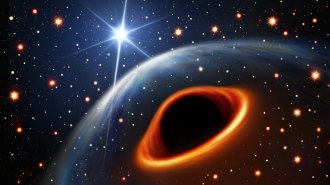 Astronomy
AstronomyAstronomers are puzzled over an enigmatic companion to a pulsar
The strange entity has a mass between that of a neutron star and a black hole. It’s either one or the other or something else entirely.
By Adam Mann -
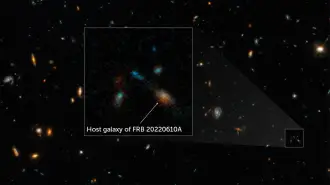 Space
SpaceThe strongest known fast radio burst has been traced to a 7-galaxy pileup
The galactic smashup, located 11 billion light-years from Earth, could have triggered star formation and also odd flares like the fast radio burst.
By Adam Mann -
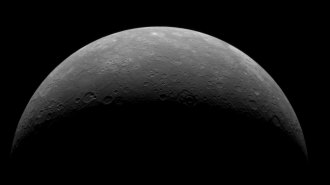 Planetary Science
Planetary ScienceSalt may have carved out Mercury’s terrains, including glacierlike features
Mercury may contain a planetwide cache of salt that has sculpted chaotic terrain and possibly even habitable niches.
By Shi En Kim -
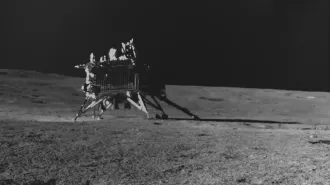 Space
SpaceIn 2023, space missions explored the moon, asteroids and more
This year, spacecraft landed on the moon, dropped off asteroid samples to Earth and started a journey to Jupiter's icy moons.
By Erin Wayman -
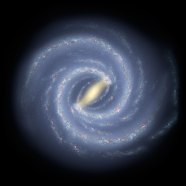 Astronomy
AstronomyA bar of stars at the center of the Milky Way looks surprisingly young
The ages and locations of metal-rich stars in the galaxy suggest the Milky Way’s central bar finished forming just a few billion years ago.
-
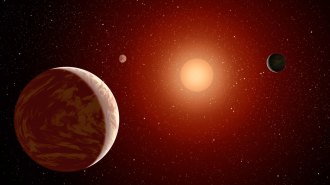 Astronomy
AstronomyHow tiny red stars can test ideas about the origin of life
A survey of ultracool dwarf stars finds they don’t emit enough UV light to kick-start life, but they could reveal other ways for life to get going.
-
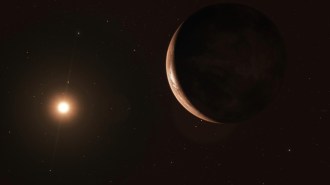 Astronomy
Astronomy50 years ago, astronomers challenged claims that Barnard’s star has a planet
Astronomers have been searching for planets around the sun’s close neighbor for decades.
-
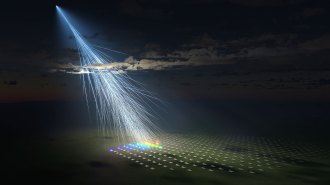 Astronomy
AstronomyA rare, extremely energetic cosmic ray has mysterious origins
In 1991, physicists spotted a cosmic ray with so much energy it warranted an ‘OMG.’ Now that energetic particle has a new companion.
-
 Astronomy
AstronomyA rare glimpse at a relatively nearby supernova offers clues to how stars die
Thanks to its home in the Pinwheel galaxy, a favorite of amateur astronomers, researchers have monitored SN 2023ixf since shortly after it exploded.
By Elise Cutts